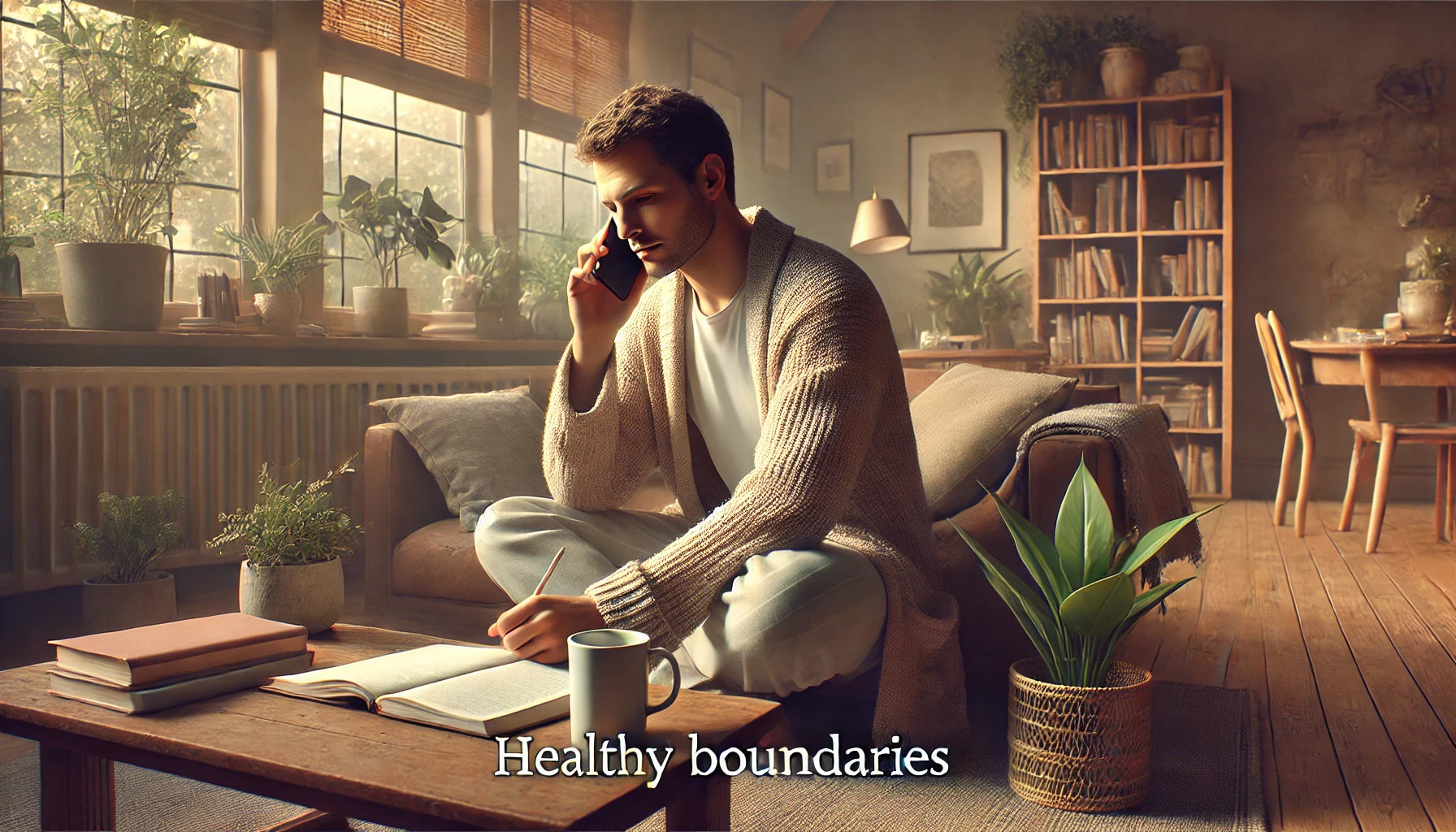Setting boundaries is one of the most important acts of self-respect — yet so many people struggle with it. We fear being seen as selfish, rude, or difficult. But the truth is: boundaries don’t push people away — they build stronger, more honest connections.
In this article, you’ll learn how to set healthy boundaries confidently, protect your peace, and let go of the guilt that often comes with putting yourself first.
What Are Healthy Boundaries?
Boundaries are the limits you set around your time, energy, emotions, and personal space. They define what you’re comfortable with — and what you’re not.
Healthy boundaries:
- Protect your emotional well-being
- Promote mutual respect in relationships
- Prevent burnout and resentment
- Help you prioritize what truly matters
- Strengthen your sense of self
Without boundaries, it’s easy to lose yourself trying to please everyone else.
Why We Feel Guilty About Boundaries
Guilt often shows up when we’ve been taught that our worth depends on always being available, helpful, or agreeable. You might feel guilty because:
- You fear disappointing or upsetting others
- You worry people will think you don’t care
- You were raised to put others first — always
- You’ve rarely seen boundaries modeled in a healthy way
But here’s the truth: you can care about people and still say no. You can be kind and still protect your energy.
1. Get Clear on What You Need
You can’t set boundaries if you don’t know where your limits are.
Ask yourself:
- What drains me emotionally or physically?
- When do I feel overwhelmed, resentful, or taken for granted?
- What would help me feel more balanced and respected?
Start paying attention to when your body or emotions send warning signals — they’re clues that a boundary is being crossed.
2. Start Small and Build From There
You don’t need to overhaul every relationship at once. Begin by setting one small boundary in a safe or low-risk situation.
Examples:
- “I’m not available to respond to work messages after 6 p.m.”
- “I can’t attend this event, but I hope it goes well.”
- “I need some alone time this weekend to recharge.”
Each time you set a boundary, your confidence grows — and guilt fades.
3. Use Clear and Kind Language
You can set firm boundaries without being harsh or defensive. It’s all about tone and clarity.
Try using “I” statements to express your needs:
- “I need some time to think before I respond.”
- “I can’t commit to that right now.”
- “I’d prefer to talk about this when we’re both calm.”
You don’t need to over-explain or apologize. A boundary is a statement — not a debate.
4. Prepare for Discomfort (It’s Normal!)
Some people may not like your boundaries — especially if they’ve benefitted from your lack of them. That doesn’t mean your boundary is wrong.
Expect:
- Pushback
- Guilt
- Doubt
But also expect:
- Growth
- Relief
- Greater self-respect
Discomfort is part of change. Stay grounded in why the boundary matters.
5. Let Go of the Need to Please Everyone
You are not responsible for other people’s reactions to your boundaries. Your job is to be clear, kind, and honest — not to manage everyone’s feelings.
Ask yourself:
- “Am I abandoning myself to keep others comfortable?”
- “Is this ‘yes’ actually a ‘no’ that I’m afraid to say?”
- “What would honoring myself look like in this moment?”
You’ll never regret choosing peace over people-pleasing.
6. Create Boundaries With Yourself Too
Boundaries aren’t just for others — they’re also for you.
Examples of personal boundaries:
- Limiting screen time or doomscrolling
- Going to bed on time
- Not checking work emails on weekends
- Saying no to overcommitting yourself
Respecting your own boundaries builds inner trust and self-discipline.
7. Repeat as Often as Needed
Boundaries aren’t a one-time announcement — they’re ongoing practices. People may test them. You may forget them. That’s okay.
When that happens:
- Reaffirm your boundary
- Stay calm and consistent
- Remind yourself: “It’s not rude to protect my peace.”
You’re allowed to change your mind, revise boundaries, and grow with them.
8. Celebrate Your Progress
Setting boundaries can feel scary, especially at first. Every time you honor yourself by setting a limit, pause to celebrate it.
You might say:
- “That was hard, but I did it.”
- “I chose myself today — and that matters.”
- “This is what growth looks like.”
Confidence builds with every boundary honored.
Boundaries Are a Form of Love — Not Rejection
When you set boundaries, you’re not pushing people away. You’re inviting healthier relationships, better communication, and deeper trust — starting with yourself.
The people who truly care about you will respect your boundaries. And those who don’t? They were only comfortable with you when it cost you something.
Let go of guilt. Honor your limits. And remember: saying “no” to what drains you is saying “yes” to what sustains you.

